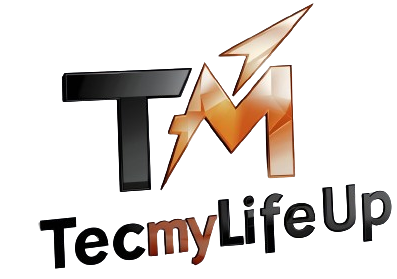Running a donation website is rewarding but comes with challenges. One major challenge is managing unsettled transactions. These transactions occur when payments fail or remain pending. If not handled properly, they can hurt your operations and donor trust.
This guide provides clear tips to manage unsettled transactions effectively. You’ll learn how to track, resolve, and prevent these issues. Let’s dive into the details.
What Are Unsettled Transactions?
Unsettled transactions are payments that do not complete successfully. They may stay in a pending state or fail entirely. Common causes include:
- Insufficient funds in the donor’s account.
- Incorrect payment details.
- Payment gateway issues.
- Bank or network delays.
Understanding these reasons helps you address the problem quickly.
Why Managing Unsettled Transactions Matters
Unsettled transactions affect your website in several ways:
- Cash Flow Issues: Pending payments disrupt your financial planning.
- Donor Trust: Donors may feel frustrated if their contributions don’t process smoothly.
- Administrative Overload: Resolving these issues takes time and effort.
By handling unsettled transactions promptly, you maintain smooth operations and donor confidence.
Tips to Handle Unsettled Transactions
1. Monitor Transactions Regularly
Stay updated on your payment activity. Use your payment gateway’s dashboard to track all transactions. Set alerts for pending or failed payments. This helps you catch issues early.
2. Contact Donors Promptly
If a transaction fails, inform the donor immediately. Use polite, clear communication. Explain the issue and provide steps to resolve it. For example:
- Ask them to check their account balance.
- Suggest re-entering payment details.
- Recommend trying another payment method.
3. Use Reliable Payment Gateways
Choose a secure and efficient payment gateway. Popular options include PayPal, Stripe, and Square. These platforms offer tools to manage unsettled transactions. Ensure the gateway supports multiple payment methods to reduce donor inconvenience.
4. Enable Automatic Retry
Many payment gateways allow automatic retries for failed payments. Enable this feature to minimize manual intervention. Inform donors about retry attempts in your terms and conditions.
5. Provide Multiple Payment Options
Offer various payment methods, such as credit cards, bank transfers, and digital wallets. More options increase the chances of successful transactions.
6. Maintain Accurate Records
Keep detailed records of all transactions. This includes payment dates, amounts, and donor details. Accurate records help you identify and resolve issues faster.
7. Implement Fraud Detection Tools
Fraudulent transactions often remain unsettled. Use fraud detection tools to identify suspicious activities. Block such transactions to protect your website and donors.
8. Offer Transparent Policies
Clearly state your payment policies on the website. Include information about:
- Processing times.
- Refund policies.
- Steps to resolve failed transactions.
Transparency builds trust and reduces donor confusion.
9. Train Your Team
Ensure your team knows how to handle unsettled transactions. Provide training on using payment gateways and communicating with donors. A skilled team resolves issues efficiently.
10. Follow Up Persistently
Don’t ignore unresolved issues. Follow up with donors and payment providers until the transaction settles. Consistent effort ensures better results.
Preventing Unsettled Transactions
Prevention is always better than cure. Here are steps to reduce unsettled transactions:
1. Verify Payment Details
Ensure donors enter correct payment details. Use real-time validation tools to catch errors immediately.
2. Optimize Your Website
Make your donation process simple and user-friendly. Avoid unnecessary steps that may confuse donors.
3. Set Donation Reminders
Send reminders to donors for recurring payments. This ensures timely contributions and reduces failed transactions.
4. Update Expired Payment Methods
Encourage donors to update expired cards or inactive accounts. Use automated reminders for this purpose.
5. Test Your Payment System Regularly
Regularly test your payment gateway to ensure smooth functioning. Fix any bugs or errors immediately.
6. Educate Donors
Provide clear instructions on how to donate. Include FAQs to address common issues. Educated donors are less likely to make mistakes.
Handling Common Scenarios
Pending Transactions
- Wait for the payment gateway to process the transaction.
- Contact the donor if the pending status persists.
- Inform them about possible delays due to bank processing times.
Failed Transactions
- Identify the reason for failure.
- Suggest alternative solutions, such as using another card.
- Offer to assist with the process if needed.
Duplicate Transactions
- Refund the extra payment promptly.
- Apologize to the donor and explain the error.
- Investigate the cause to prevent future duplicates.
Chargebacks
- Respond to chargeback requests promptly.
- Provide evidence to dispute fraudulent claims.
- Review your policies to reduce chargeback risks.
Checklist for Managing Unsettled Transactions
Use this checklist to handle unsettled transactions effectively:
Monitoring and Tracking
- Check payment gateway dashboard daily.
- Set alerts for failed or pending payments.
- Maintain detailed transaction records.
Donor Communication
- Inform donors about failed transactions immediately.
- Provide clear steps to resolve issues.
- Follow up persistently until resolved.
Payment Gateway Optimization
- Enable automatic retries for failed payments.
- Use fraud detection tools.
- Test the payment system regularly.
Donor Support
- Offer multiple payment options.
- Provide FAQs and support resources.
- Send reminders for recurring payments.
Policy and Training
- Clearly state payment policies on the website.
- Train your team to handle unsettled transactions.
- Update policies based on donor feedback.
Tools to Help Manage Unsettled Transactions
1. Payment Gateway Features
Leverage tools like dashboards, alerts, and automatic retries. Popular gateways like Stripe and PayPal offer these features.
2. Customer Relationship Management (CRM) Tools
CRM tools like Salesforce help track donor interactions and payment history.
3. Fraud Detection Software
Use tools like Riskified or Sift to identify and block fraudulent transactions.
4. Accounting Software
Software like QuickBooks simplifies transaction tracking and reconciliation.
Conclusion
Handling unsettled transactions requires proactive management. Monitor your payments, communicate with donors, and use reliable tools. Preventive measures, like optimizing your website and educating donors, also help.
By following these tips, you’ll maintain smooth operations and strong donor trust. Use the checklist to stay organized and resolve issues quickly.
Remember, consistent effort is key to managing unsettled transactions effectively.

